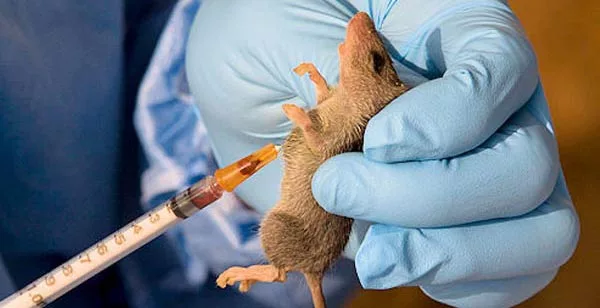As Nigeria battles yet another Lassa fever outbreak, citizens have been urged on preventive measures against the disease.
Lassa Fever is a hemorrhagic diseases caused by the Lassa virus. The Mastomys, Natalensis, a multi-mammate rat is the reservoir of the virus. These rats transmits the virus when they contaminate food & water.
The virus is also transmitted through contact with body fluids of infected persons like blood, vomitus and feces.
The Nigeria Centre for Disease Control and Prevention (NCDC) has confirmed 476 cases of Lassa fever and 84 deaths in 23 States this year.
Director-general of NCDC, Dr. Jide Ojo, who disclosed this at a press briefing recently in Abuja, said “As at February 18, 2024 (end of week 7), 84 local government areas in 23 states of the country have reported a total of 2,621 suspected cases of Lassa fever, 476 confirmed, and 84 deaths with a case fatality rate of 18.6 percent.”
The DG said people most at risk of Lassa fever include people of all age groups who come in contact with the urine, faeces, saliva, or blood of infected rats.
He urged the public to always keep your environment clean. “Block all holes in your house to prevent the entry of rats and other rodents.
Stressing the need for Nigerians to practice personal and environmental hygiene to prevent the infestation of rats in their homes and communities, especially during dry season when the country typically record more cases of Lassa fever, the DG said “Cover your waste bins and dispose your waste properly.
“Safely store food items such as rice, garri, beans, corn/maize, etc, in tightly sealed or well-covered containers. Avoid drying food stuff outside on the ground or roadside, where it is at risk of contamination.
“Eliminate rats in homes and communities by using rat traps and other appropriate and safe means.”
“Communities should set up dump sites far from their homes to reduce the chances of the entry of rodents into their homes.”
HDr.Jide advised advised health workers to always practice standard infection prevention and control practices, like using of gloves, face masks, and other appropriate personal protective equipment while handling patients or providing care for an ill patient.
He also urged them to maintain a high index of suspicion for Lassa fever. “Be vigilant and consider a diagnosis of Lassa fever when seeing patients presenting with febrile illness.
“Healthcare providers should report all suspected cases of Lassa fever to their local government Disease Surveillance and Notification Officer to ensure prompt diagnosis, referral, and early commencement of public health actions.”
NCDC has also urged people to go for proper diagnosis when feeling ill, saying not all fevers are malaria.
Meanwhile, the mandate secretary, Health Services and Environment of the FCT, Dr. Adedolapo Fasawe, has said that the FCT has activated a sub national level multisectoral Emergency Operations Centre (EOC) on response to Lassa fever in the FCT.
She said the purpose of activating the EOC is to achieve a coordinated sub national response and interrupt the transmission as soon as possible.
This was after the NCDC had activated the national EOC to strengthen coordination of response efforts in response to the rapidly increasing cases of Lassa fever in the country.
On presentation, the mandate secretary said about 80 percent of the cases are said to be asymptomatic while in 20 percent, the disease progresses with a variety of severity.
“Symptoms are non-specific and mimic other infectious diseases. However, common signs and symptoms to look out for include high fever (38.5 degrees) which is usually not responsive to routine treatment, chest pain, vomiting, diarrhea. The late-stage disease is characterized by bleeding from orifices and multi-organ shut down,” she explained.
Adedolapo stressed that there was no need for alarm but basic precautions such as “Not exposing food to the possibility of rat droplets.
“Early report to the nearest health centre. Report all suspected cases to the nearest health facility.
“Clinicians in both public and private health facilities should have a high index of suspicion.”h
According to her, the designated treatment centres in the FCT are located in the National Hospital and the University of Abuja Teaching Hospital, Gwagwalada.











